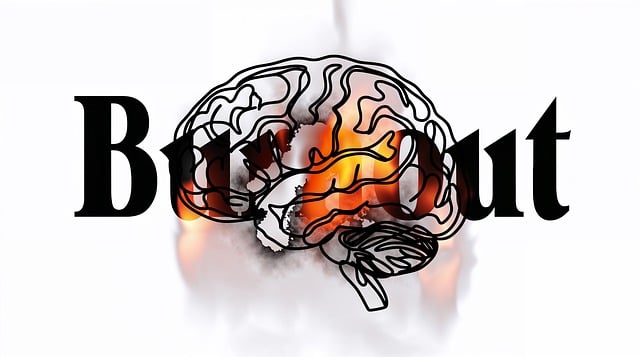Mental health professionals like those offering Arvada Trauma Therapy face unique challenges including secondary trauma and burnout due to high-stress work with clients' traumatic experiences. To mitigate these risks, they employ strategies such as risk assessment tools (structured interviews, scales), self-care principles (Mind Over Matter), community outreach programs, continuous learning, and peer review. These approaches ensure better client care while prioritizing therapist well-being, keeping professionals informed on best practices to enhance their resilience and adapt to evolving trends in their field.
In the demanding field of mental health, professionals constantly navigate complex emotions and traumatic narratives. Understanding the unique risks inherent in this work is paramount. This article explores a comprehensive risk assessment framework tailored for mental health experts, focusing on tools, strategies, and continuous monitoring. From identifying potential hazards like burnout and secondary trauma to implementing effective mitigation tactics, we delve into best practices, emphasizing the importance of professional development in high-risk settings, particularly in Arvada Trauma Therapy contexts.
- Understanding the Unique Risks Faced by Mental Health Professionals
- Implementing Comprehensive Risk Assessment Tools and Techniques
- Strategies for Mitigating and Managing Identified Risks
- Continuous Monitoring and Professional Development for Risk Management
Understanding the Unique Risks Faced by Mental Health Professionals

Mental health professionals, such as those providing Arvada Trauma Therapy, encounter unique challenges that contribute to their own mental health risks. Beyond the general stress associated with any caregiving role, they are often exposed to traumatic experiences and intense emotions on a regular basis. This includes listening to clients’ deeply personal stories of abuse, loss, and suffering. Such exposure can lead to secondary trauma, compassion fatigue, and burnout—all significant threats to their well-being.
The pressure to maintain high standards of care, coupled with demanding caseloads and often limited resources, exacerbates these risks. Mental health professionals must also navigate complex ethical dilemmas and manage the emotional weight of not always being able to prevent negative outcomes or achieve desired client outcomes. Effective risk assessment for these professionals should account for these specific stressors, incorporating strategies for stress management and fostering public awareness campaigns that promote support for their unique needs.
Implementing Comprehensive Risk Assessment Tools and Techniques

Implementing Comprehensive Risk Assessment Tools and Techniques is an essential step for mental health professionals in Arvada Trauma Therapy and beyond. It involves a systematic approach to evaluate patients’ risks, including psychological, social, and environmental factors. By employing robust tools like structured clinical interviews and standardized assessment scales, therapists can uncover underlying vulnerabilities and potential triggers, thereby facilitating more tailored treatment plans.
This process requires ongoing Self-Awareness Exercises and Resilience Building among practitioners. Regularly reviewing one’s own biases, emotional responses, and boundaries is crucial to ensuring safe and effective therapy. Moreover, integrating Risk Management Planning for Mental Health Professionals allows therapists to proactively mitigate risks, create safety plans, and promptly respond to any emerging challenges, fostering a supportive environment for both clients and therapists alike.
Strategies for Mitigating and Managing Identified Risks

When risks are identified during a comprehensive assessment for mental health professionals, several strategic interventions can be employed to mitigate their impact and promote a safe working environment. One such approach is incorporating Mind Over Matter Principles, which empower practitioners with coping mechanisms to navigate challenging situations effectively. These principles encourage self-care practices like setting professional boundaries, maintaining work-life balance, and practicing mindfulness techniques to reduce stress and anxiety. For instance, therapists in Arvada Trauma Therapy can utilise these principles to help clients while also ensuring their well-being is prioritised.
Additionally, implementing a robust Community Outreach Program can significantly enhance risk management. This involves connecting with local support networks, educational institutions, and community groups to foster an environment of open dialogue about mental health. By participating in such programs, professionals can not only raise awareness but also identify potential risks early on, allowing for timely interventions. For example, a well-structured Community Outreach Program Implementation strategy could include hosting anxiety relief workshops, screening programs, or support group meetings, thereby reducing the risk factors associated with untreated mental health issues and promoting a healthier, more resilient community.
Continuous Monitoring and Professional Development for Risk Management

Mental health professionals must embrace continuous monitoring and professional development as integral components of risk management. Regular self-assessment and peer review enable practitioners to identify potential risks early, ensuring they can mitigate them effectively. By staying up-to-date with the latest research and best practices, such as those offered by Arvada Trauma Therapy, professionals can enhance their skills in areas like conflict resolution techniques and emotional regulation. This proactive approach not only boosts confidence but also ensures high-quality care for clients.
Ongoing training in Conflict Resolution Techniques and Emotional Regulation is crucial for maintaining a safe and supportive therapeutic environment. These tools help professionals navigate challenging situations with composure, fostering better client outcomes. Through regular professional development, mental health workers can adapt to changing trends and needs, ensuring they remain at the forefront of their field while providing tailored care that addresses specific risks and concerns.
Mental health professionals, like those offering Arvada Trauma Therapy, face unique risks that demand specialized attention. By implementing robust risk assessment tools, mitigating identified vulnerabilities, and committing to continuous monitoring and professional development, therapists can create a safer working environment. This proactive approach not only protects the well-being of practitioners but also ensures they are equipped to provide the best possible care for their clients.














